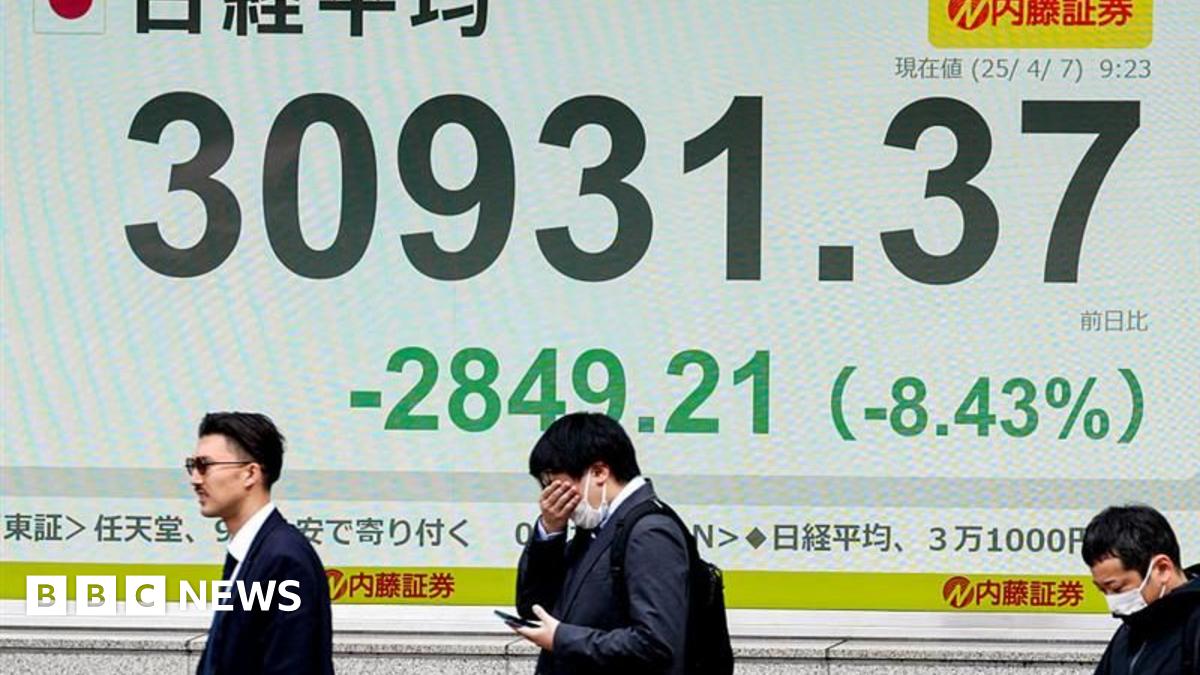Trump Tariffs: Asian Markets Plunge Amidst Renewed Trade War Fears
The announcement of new tariffs on Asian goods sent shockwaves through global markets, with Asian stock markets experiencing a significant plunge. The move, widely seen as a renewed escalation of the trade war, has ignited fears of a global economic slowdown and sparked widespread uncertainty.
This latest development comes after months of relative calm in the trade relations between the US and key Asian economies. However, the unexpected imposition of these tariffs has shattered that fragile peace, leaving investors scrambling to assess the potential impact on their portfolios.
Market Reactions: A Deep Dive
The impact on Asian markets has been immediate and dramatic. Major indices across the region saw sharp declines, with some experiencing their worst day in months.
- Hong Kong: The Hang Seng Index plummeted by over 3%, wiping billions of dollars off its market capitalization.
- Shanghai: The Shanghai Composite Index also suffered a significant drop, falling by more than 2%.
- Tokyo: The Nikkei 225 experienced a similar downturn, closing down over 1.5%.
- Seoul: The KOSPI in South Korea also saw considerable losses, reflecting the interconnectedness of Asian economies.
These declines highlight the vulnerability of Asian markets to shifts in US trade policy. The region's export-oriented economies are heavily reliant on trade with the US, making them particularly susceptible to tariff increases.
The Underlying Causes: More Than Just Tariffs
While the immediate trigger is the new tariffs, the underlying causes are more complex. Analysts point to several factors contributing to the market's negative reaction:
- Uncertainty: The lack of clarity surrounding the future direction of US trade policy is a major source of anxiety for investors. The unpredictable nature of the Trump administration's actions makes it difficult for businesses to plan for the long term.
- Global Economic Slowdown: Concerns about a broader global economic slowdown are also exacerbating the situation. The trade war has already dampened global growth, and these new tariffs are likely to further exacerbate the problem.
- Supply Chain Disruptions: The tariffs could lead to significant disruptions in global supply chains, forcing companies to re-evaluate their sourcing strategies and potentially increasing production costs.
What This Means for Investors: Navigating the Storm
The current market volatility underscores the need for investors to adopt a cautious approach. Diversification remains crucial, as does a thorough understanding of the potential risks associated with exposure to Asian markets. Consulting with a financial advisor is recommended for those seeking guidance on navigating this turbulent period.
Looking Ahead: Potential Outcomes and Uncertainties
The long-term consequences of these new tariffs remain uncertain. However, several potential scenarios are being debated:
- Negotiated Settlement: A negotiated settlement between the US and affected Asian nations could alleviate some of the pressure on markets. However, the likelihood of such an outcome remains unclear.
- Further Escalation: The possibility of further escalation remains a significant concern. Additional tariffs could trigger even more dramatic market reactions.
- Economic Slowdown: A prolonged trade war could lead to a significant global economic slowdown, with potentially severe consequences for Asian economies.
This situation is rapidly evolving, and investors should closely monitor developments for any further updates. Staying informed through reputable news sources and seeking professional financial advice are vital strategies for navigating this period of uncertainty. The future of Asian markets hinges on the resolution of this ongoing trade dispute.

